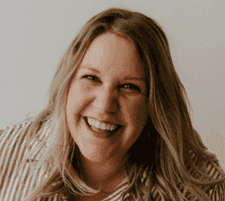Qualified mortgages were created in 2014 to make it more likely that a borrower who’s approved for a home loan can afford and pay back that loan. Lenders now need to carefully assess a home buyer’s ability to repay, and borrowers must meet stricter criteria than they did more than a decade ago.
If borrowers don’t meet the revised criteria, they won’t be approved for a qualified mortgage. This is where nonqualified mortgages come in. While nonqualified mortgages sometimes have a bad reputation, they might be the right choice for some borrowers. To help you make an informed decision concerning qualified and nonqualified mortgages, here’s what you need to know about both options.
What Is A Qualified Mortgage?
A qualified mortgage loan (QM loan) meets all the consumer protection requirements of the Consumer Financial Protection Bureau (CFPB). Borrowers must have a reasonable debt-to-income ratio (DTI), and mortgage lenders can’t offer mortgage products with artificially low introductory monthly payments that sharply increase when the teaser period ends.
What Are The QM Rules?
To understand what a qualified mortgage is, it’s helpful to look at the requirements that lenders want you to meet before they’ll offer you a qualified mortgage. Qualified mortgages can’t have:
- Risky loan features: Lenders can’t offer artificially low monthly loan repayments in the early years of the loan term or provide loans with risky features. Examples include interest-only loans, balloon payments and negative amortization.
- A high percentage of a borrower’s income going toward their debt: There are limits to how much of a borrower’s income they can put toward their debt. The amount of your income that goes toward your debt is known as your debt-to-income ratio (DTI), and it generally can’t exceed 43% – 57%, depending on your lender and the type of loan.
- Excess upfront costs and fees: The limit on costs and fees will vary by the size of the loan, but if costs and fees are over the threshold, the loan can’t be considered a qualified mortgage.
- A loan term longer than 30 years: Lenders must offer loans with a repayment term of no more than 30 years. Most often, borrowers will be able to choose a 15-year or 30-year
A qualified mortgage also indicates your lender has followed the “ability to repay” rules, meaning they’ll ask about and document your assets, credit history, employment, monthly expenses and income. For your income, they’ll review your W-2s and pay stubs in an effort to figure out if you can repay the loan they’re thinking of offering you.
See What You Qualify For
Buy A Home
Discover mortgage options that fit your unique financial needs.

Refinance
Refinance your mortgage to have more money for what matters.
Tap Into Equity
Use your home’s equity and unlock cash to achieve your goals.
What Is A Nonqualified Mortgage?
Unlike a qualified mortgage, a nonqualified mortgage (non-QM loan) doesn’t conform to the consumer protection provisions of the CFPB. Applicants who have an income that varies or who face other unique circumstances, such as being a freelancer or side-gig worker, may qualify for this type of mortgage.
For example, if your DTI is higher than the maximum allowed, a lender may not be able to offer you a qualified mortgage. Or, if you have erratic income and don’t meet the income verification requirements set forth by the CFPB, you may not be eligible for a qualified mortgage.
A lender may instead decide to offer you a nonqualified mortgage. If so, it doesn’t mean the lender won’t do any verification or assessment of your ability to repay the loan; it just means you don’t meet the specific criteria for a qualified mortgage. Lenders can perform manual underwriting to verify your income using bank statements, 1099s, tax returns and other applicable documentation.
Interest rates on loans will vary from lender to lender, but you may find that a nonqualified mortgage will have a higher interest rate and higher down payment. If that’s the case, it’s because lenders often find these loans riskier since the borrowers who apply for them typically have more debt and a less stable income.
Who Can Benefit From A Nonqualified Mortgage?
Most borrowers end up with a qualified mortgage. However, a nonqualified mortgage is an easier option in some circumstances. This may be the case for the following types of borrowers:
- The self-employed
- Business owners
- Those with higher levels of debt
- Those with a low credit score
- Real estate investors
- Freelance or gig-economy workers with a varying income
- Foreign nationals
Nonqualified mortgages allow these borrowers to get into a home more easily than they could with a qualified mortgage.
FAQ
While differences exist in how you qualify for a qualified mortgage versus a nonqualified mortgage, the actual loans also have their differences. Here are a few frequently asked questions – followed by their answers – so you can better understand your options.
Additionally, only QMs can be insured, guaranteed or backed by the FHA, the VA, Fannie Mae or Freddie Mac, so these loans are safer for investors who buy mortgage-backed investments.
Non-QM loans aren’t insured, guaranteed or backed by the FHA, the VA, Fannie Mae or Freddie Mac.
If you have a low credit score, a high debt-to-income ratio or an income that varies enough for a traditional mortgage not to be an option, a nonqualified loan may be the right fit for you.
To apply for a non-QM loan, you’ll need to research lenders and find a loan option that works for your needs. From there, the lender’s online resources or a representative can help guide you through the application process.
However, if you have a stable income, a DTI below the maximum allowed and good credit, a qualified mortgage is a better choice.
The Bottom Line
Taking out a non-QM loan can be the way to go for some borrowers who are unable to secure a qualified mortgage loan due to unreliable income, a high DTI or a low credit score. However, lenders still have standards for non-QM borrowers and need to assess the borrower’s ability to repay. That said, the requirements for non-QM loan approval are certainly more relaxed.
Even so, an alternative to a nonqualified mortgage will be a better fit for some borrowers who aren’t eligible for a qualified mortgage.
Find A Mortgage Today and Lock In Your Rate!
Get matched with a lender that will work for your financial situation.

Miranda Crace
Miranda Crace is a Staff Writer for Rocket Companies, bringing a wealth of knowledge about mortgages, personal finance, real estate and personal loans for over 10 years. Miranda is dedicated to advancing financial literacy and empowering individuals to achieve their financial and homeownership goals. She graduated from Wayne State University, where she studied PR writing, film production and film editing. In her spare time, Miranda enjoys traveling, actively engages in the entrepreneurial community, and savors a perfectly brewed cup of coffee.












